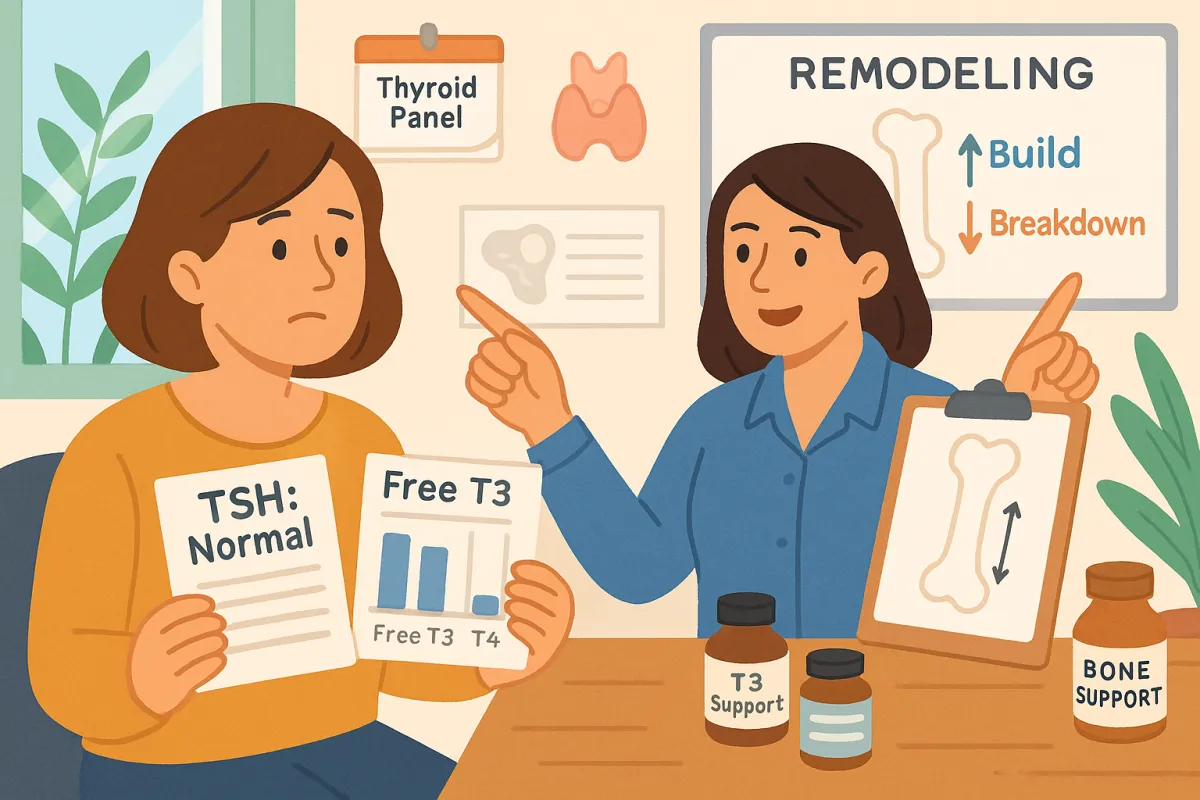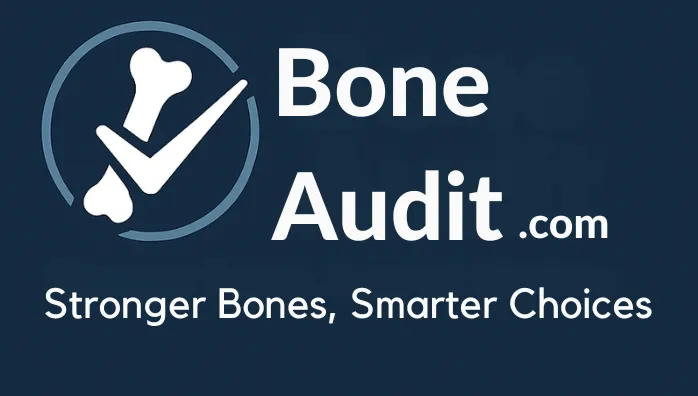
Thyroid and Your Bones: Why Just Checking TSH Isn’t Enough
Your thyroid helps regulate metabolism — including how quickly your bones rebuild. When thyroid hormones are too high, bone turnover speeds up, and you can lose bone faster than it’s replaced.
Many people with low bone density have never had a complete thyroid check — and even those on thyroid medication may assume their levels are fine, when they might not be.
Here’s what you need to know.
🧪 What Does the Thyroid Do?
The thyroid produces two key hormones: T3 (triiodothyronine) and T4 (thyroxine). These hormones help regulate how quickly your body burns energy, rebuilds tissues, and processes nutrients — including calcium.
The pituitary gland regulates thyroid function through TSH (thyroid-stimulating hormone), which signals the thyroid to make more or less hormone as needed.
Free T3 is the active form used by your cells
Free T4 is the storage form, which converts into T3 as needed
⚠️ Why TSH-Only Testing Can Miss the Full Picture
Many doctors rely on TSH alone to assess thyroid function. If your TSH is in range, they assume everything is fine. But this can be misleading — especially for bone health.
For example:
Your TSH may be low, but Free T3 and Free T4 could still appear within the lab’s “normal” range.
However, some integrative medicine practitioners believe those “high-normal” levels may still accelerate bone turnover, especially in postmenopausal women.
This condition is known as subclinical hyperthyroidism — where thyroid hormone activity is a bit too high, even though it doesn't trigger red flags in conventional tests.
This matters because even slight increases in thyroid hormone can increase bone loss over time.
💊 What About Thyroxine (T4) Medication?
If you're on thyroxine (e.g., Eltroxin, Oroxine, or Synthroid) for an underactive thyroid, you might assume everything’s under control.
But here’s the issue:
If your TSH is low and no one checks your Free T3 and T4 levels, you might be over-supplementing, pushing your thyroid activity into a bone-loss zone — even if you're symptom-free.
This is especially important if you're postmenopausal or already have osteopenia or osteoporosis.
That’s why we recommend getting a full thyroid panel:
✅ TSH
✅ Free T3
✅ Free T4
This gives a much clearer picture of what’s happening — and helps avoid both under- and over-treatment.
🦴 What You Can Do
If you're taking thyroid medication, especially thyroxine, ask your doctor to review your full panel and bone density trends.
If you’ve never had your Free T3 and T4 tested, ask for them — especially if your DEXA scan shows bone loss with no clear cause.
Don’t make medication changes on your own — but do get informed and involved in your treatment plan.
Final Thought
Thyroid function plays a powerful (and often underestimated) role in your bone health.
Relying only on TSH might miss important signs that your thyroid is affecting your bones. A complete picture requires looking at Free T3 and Free T4 — not just assuming your medication or lab results mean everything’s fine.
If your bones are losing density without a clear reason, it might be time to look a little deeper.
